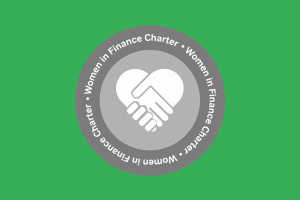Bridging Finance Solutions is part of the latest group of businesses to sign up to the Government’s official gender led equality initiative, ‘The Women in Finance Charter’.
BFS now forms part of a wider group comprising 330 businesses, totalling some 800,000 employees, which represent many of the country’s leading lending institutions and professional services firms.
The Charter was set up as part of the Government’s plan to tackle gender inequality in financial services where just 14% of executive positions are held by women. This latest announcement coincides with the publication of the second Women in Finance Charter Annual Review.
The BFS team operates on a split gender workforce, including senior management. Steve Barber, Managing Director of BFS commented: “Gender equality within the BFS business has been an important part of the operation from the outset. As a modern, innovative and forward thinking lender, female representation at senior management level has formed an important part of our strategy and will continue to do so moving forward.
We wanted to acknowledge and demonstrate our commitment officially by signing the Charter and support this important initiative.”
John Glen, Economic Secretary to the Treasury said: “Gender equality is not just a moral imperative, it’s also better for employees and better for business. Which is why it’s vital that we see conversations on gender diversity taking place across the financial sector.
“Without the committed women and men championing the gender agenda at every level in their firms, we would not have seen the fantastic progress that we have today. But, we will only see long-lasting change with consistent action, so we’ll continue to monitor the progress of the sector closely to ensure it keeps up the momentum. If progress slows, we can and will take further action.
About the Women in Finance Charter
- commits firms to supporting the progression of women into senior roles in the financial services sector by focusing on the executive pipeline and the mid-tier level;
- recognises the diversity of the sector and that firms will have different starting points – each firm should, therefore, set its own targets and implement the right strategy for their organisation; and
- requires firms to publicly report on progress to deliver against these internal targets to support the transparency and accountability needed to drive change





